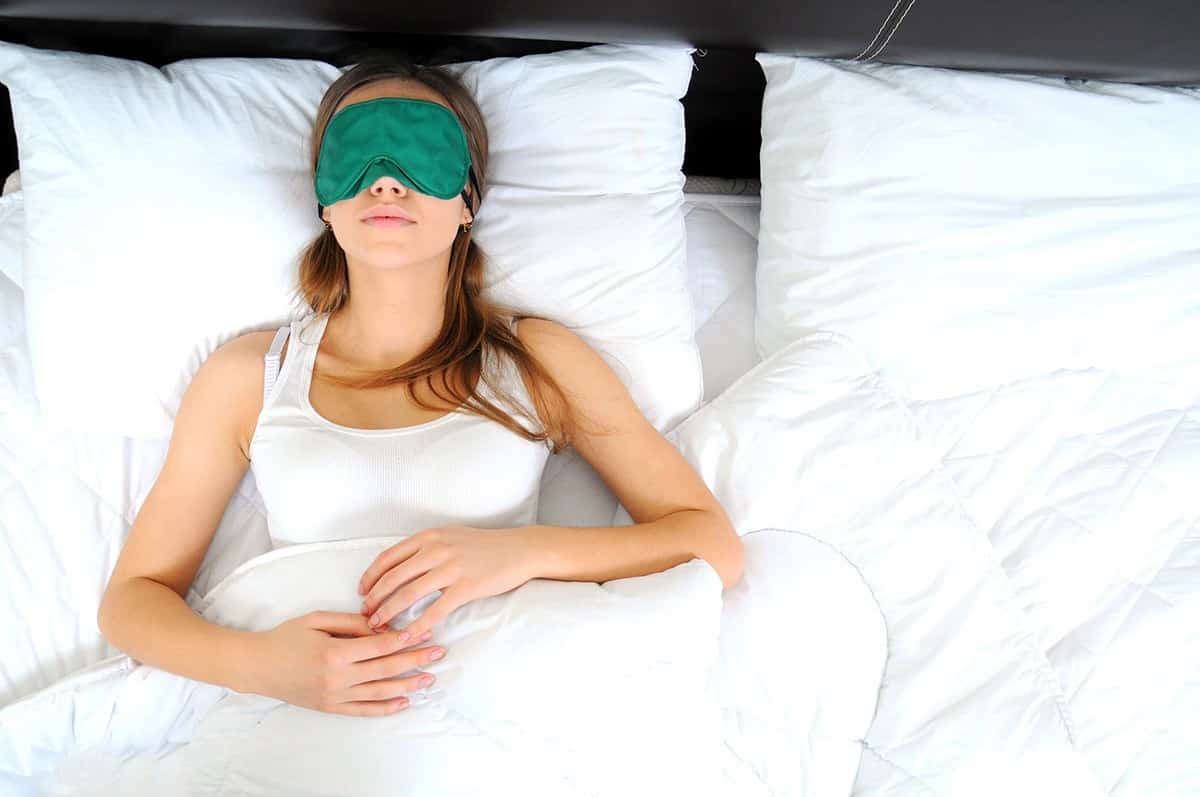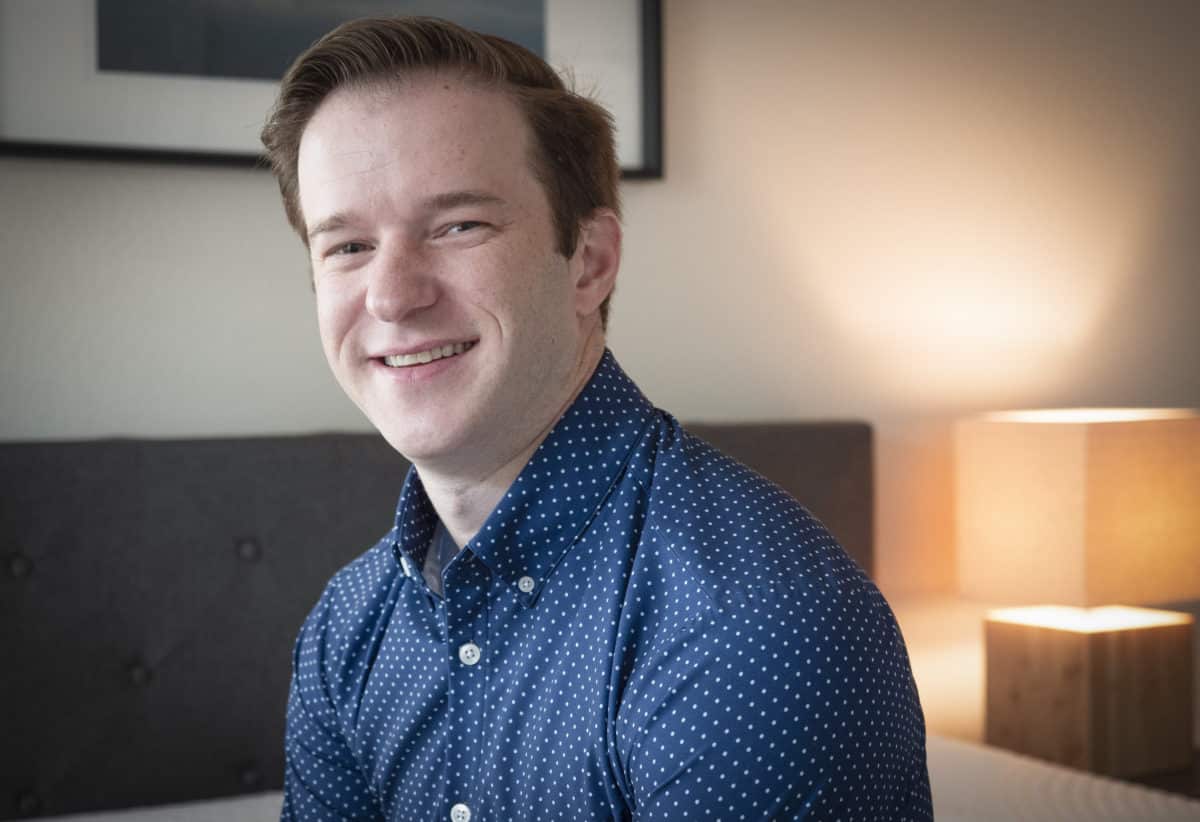An eye mask is certainly a chic travel accessory, but have you ever wondered whether they actually work when it comes to improving your sleep?
The point of an eye mask is to block out any light that might interfere with getting some zzzs. Experts say that darkness helps cue our bodies into releasing melatonin, which makes us sleepy and ready for bed. Exposure to light can lead to a suppression of this melatonin, says Science Daily.
George Rudy/Shutterstock
In one study looking at the efficacy of eye masks and earplugs, researchers replicated a noisy, bright intensive care unit (ICU). Over four different 9-hour nighttime periods they studied the sleep patterns of 14 healthy participants, some of whom were given eye masks and earplugs, and some of whom were not.
Participants who used eye masks and earplugs got more REM sleep and experienced elevated melatonin levels compared to those without the accessories — in other words, they slept better.
Obviously, an eye mask that is too tight around your head or irritates your skin won’t be much help, so if you’re in the market for a mask, make sure it fits properly and feels good. And if you suffer from any eye issues such as glaucoma, it’s worth checking with your doctor before using an eye mask — just in case.
[Editor’s Note: The information provided should not be considered a substitute for professional advice. Please consult a medical expert if you have questions related to your own health.]
Featured image: Andrey_Popov/Shutterstock


